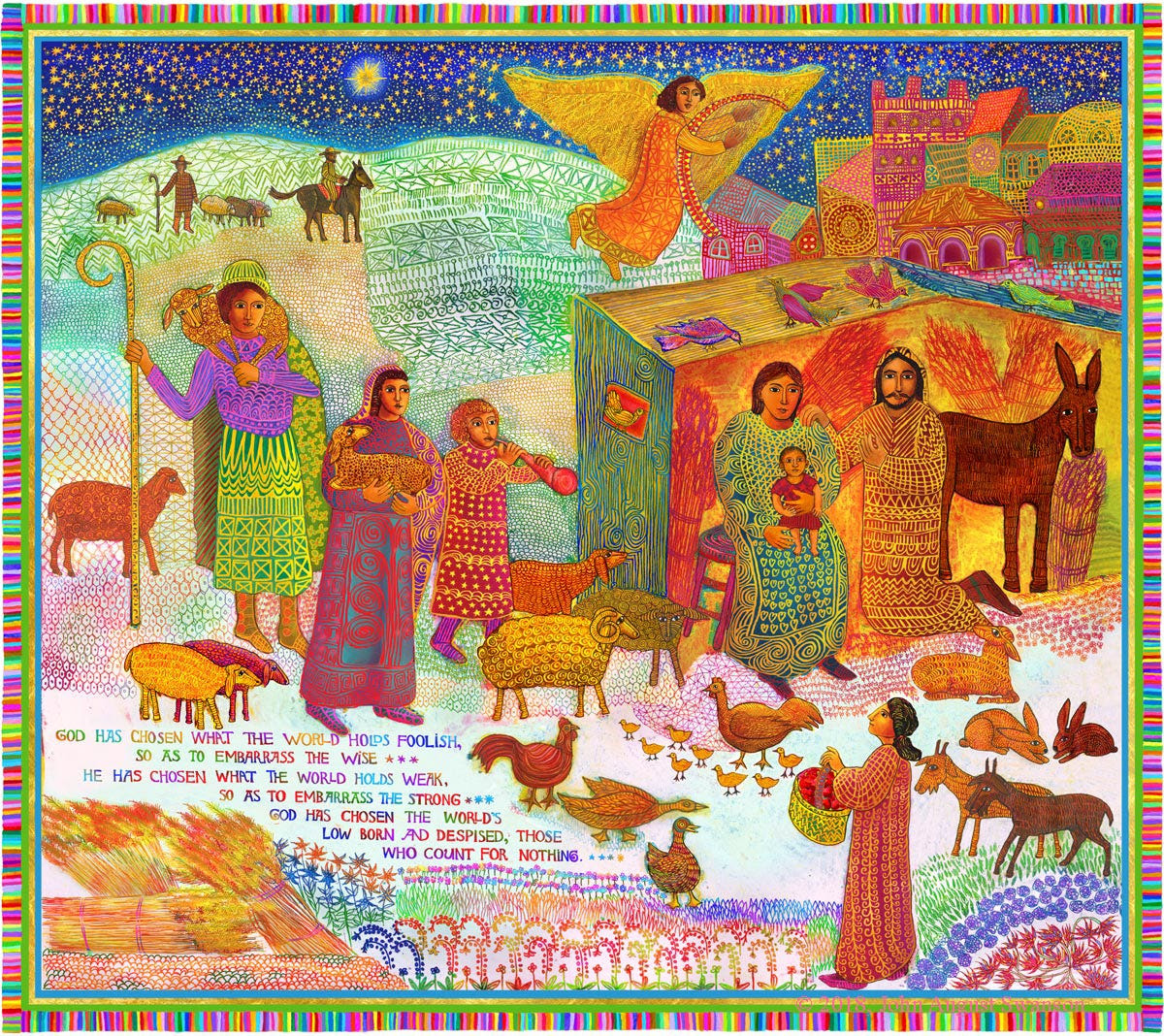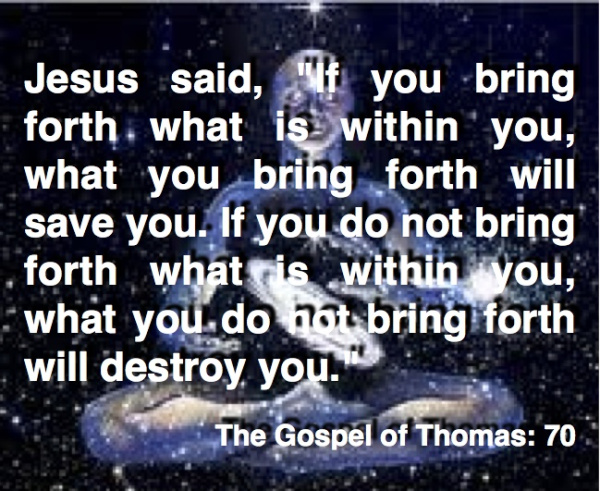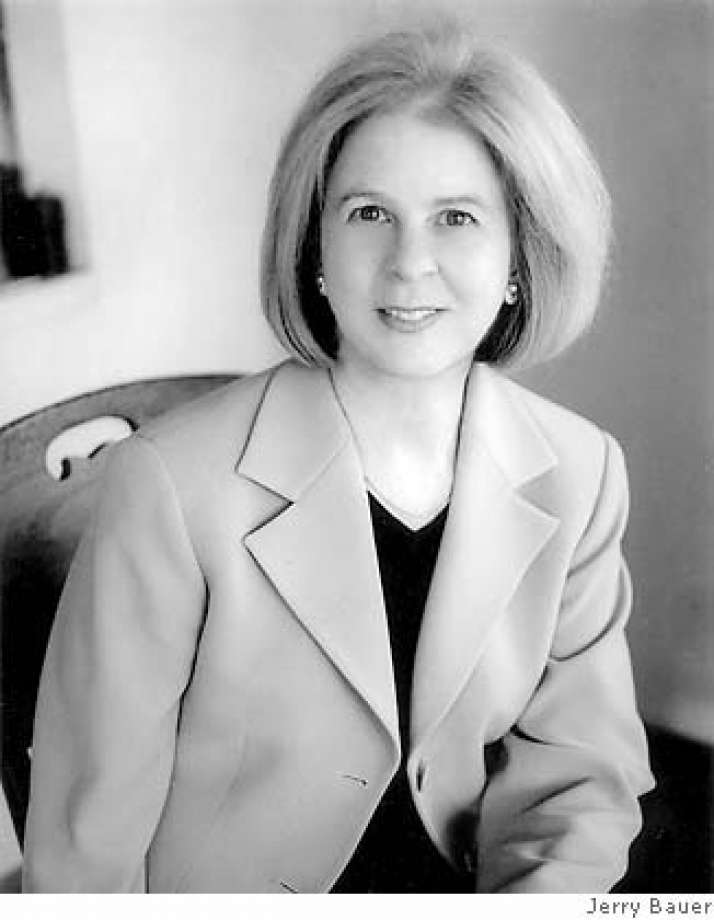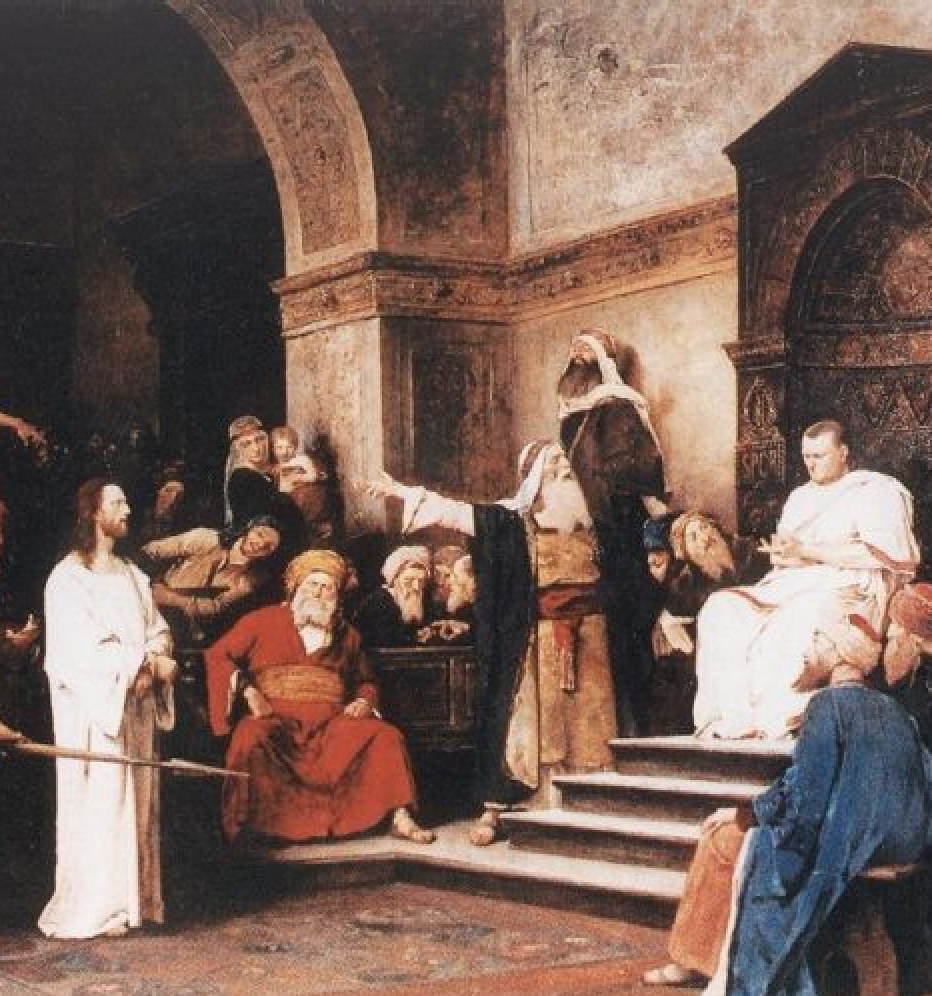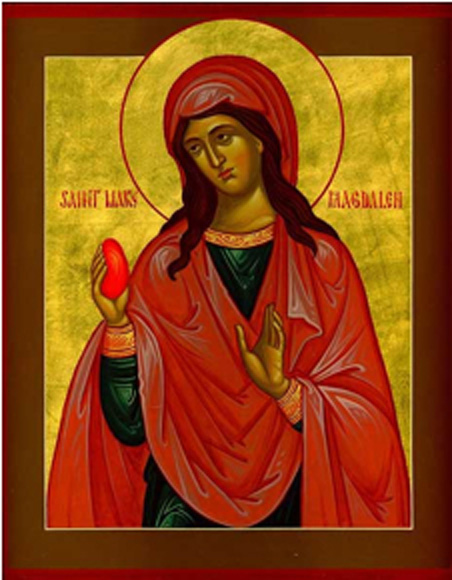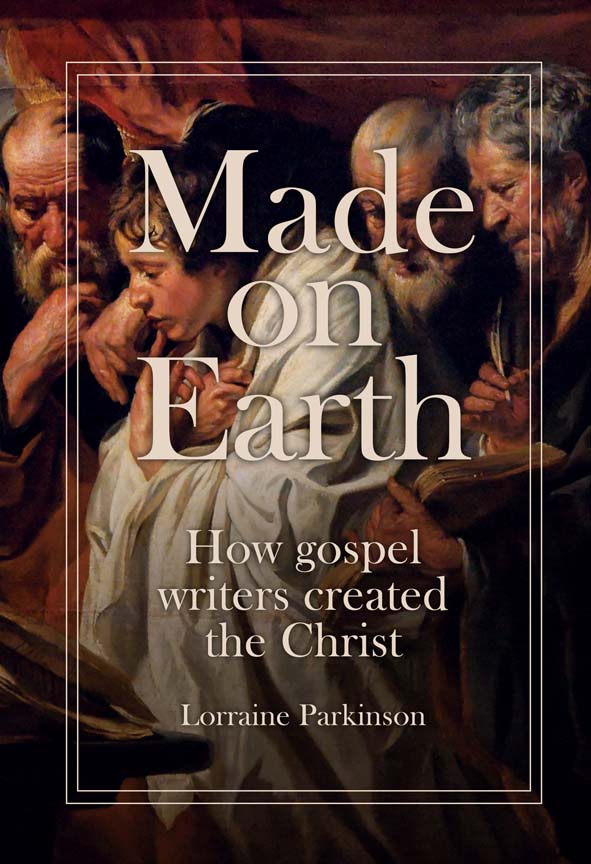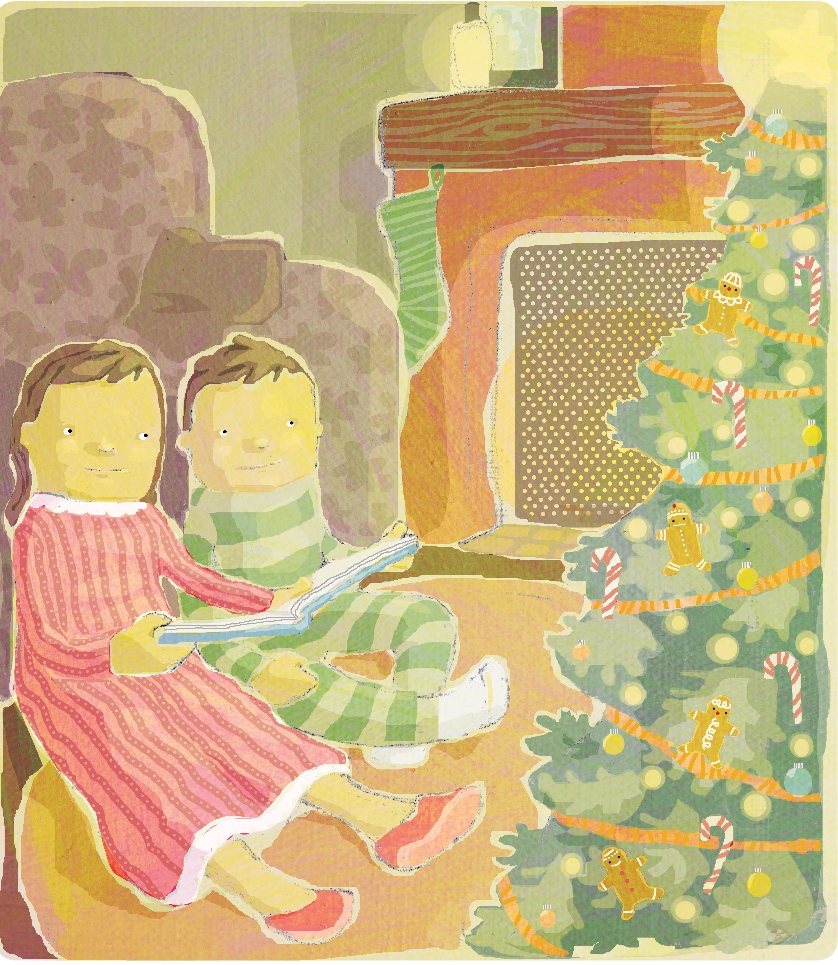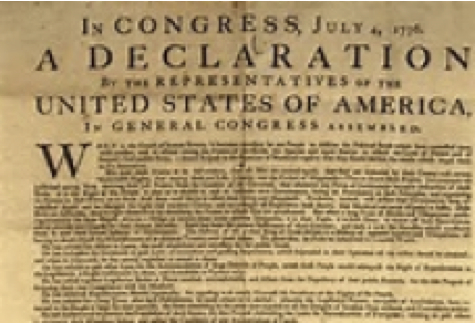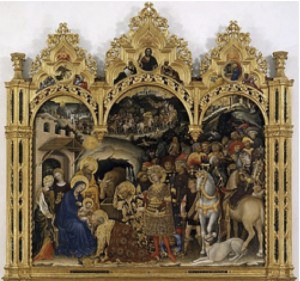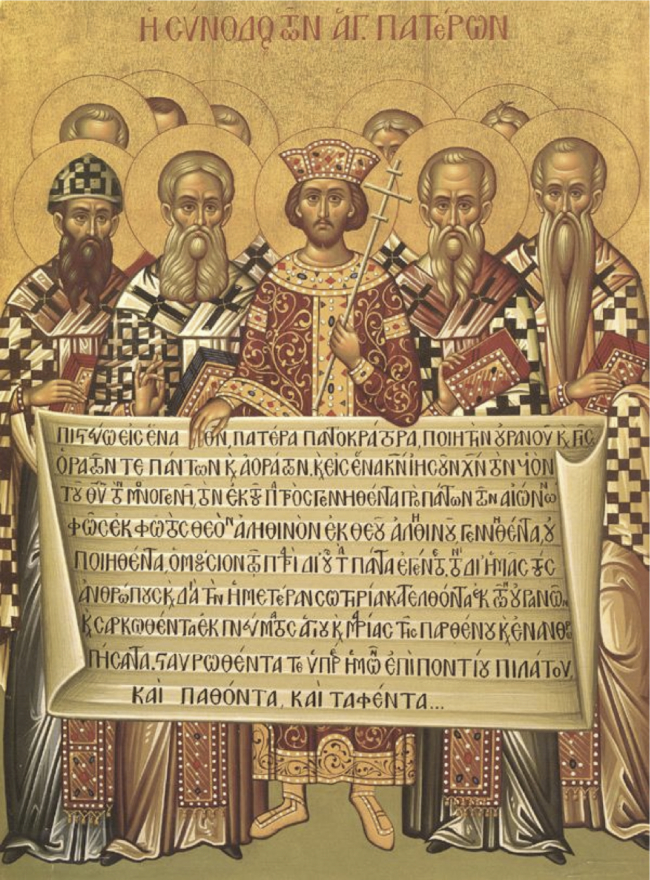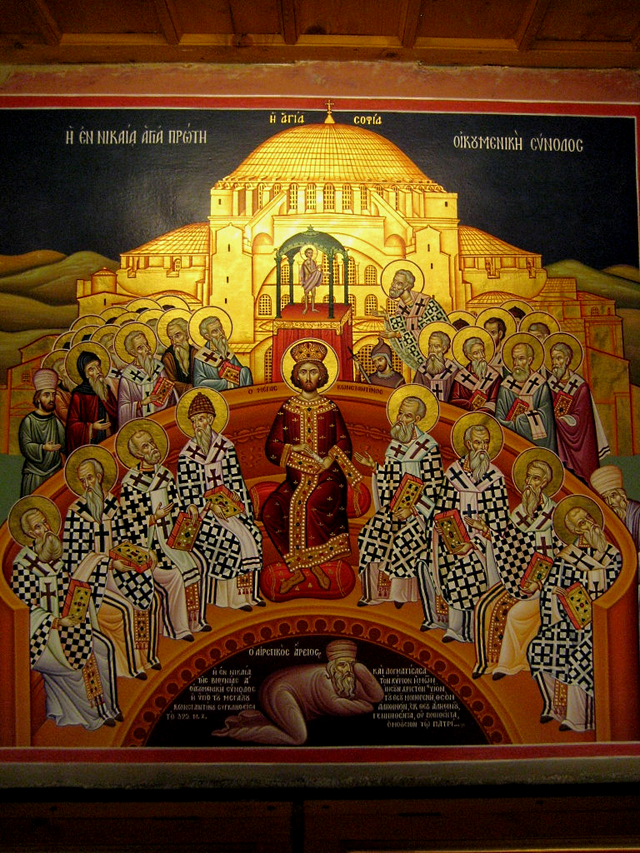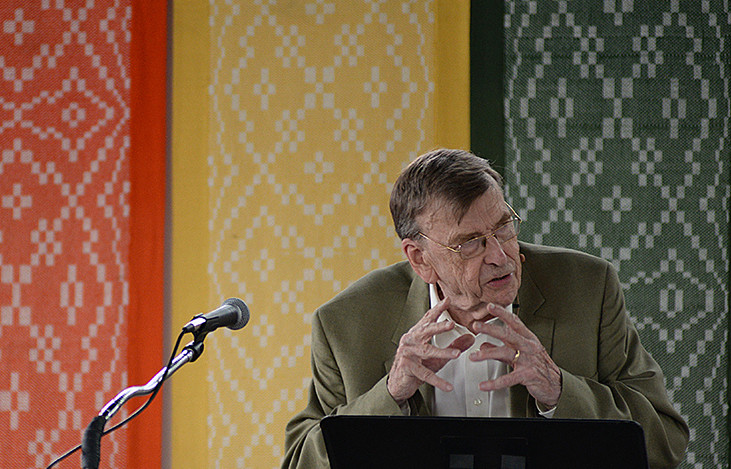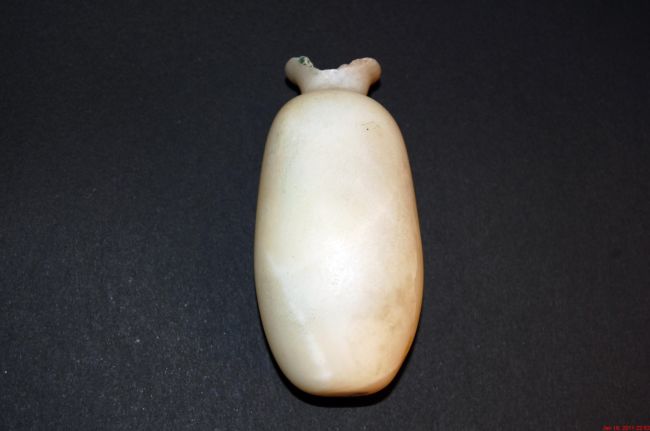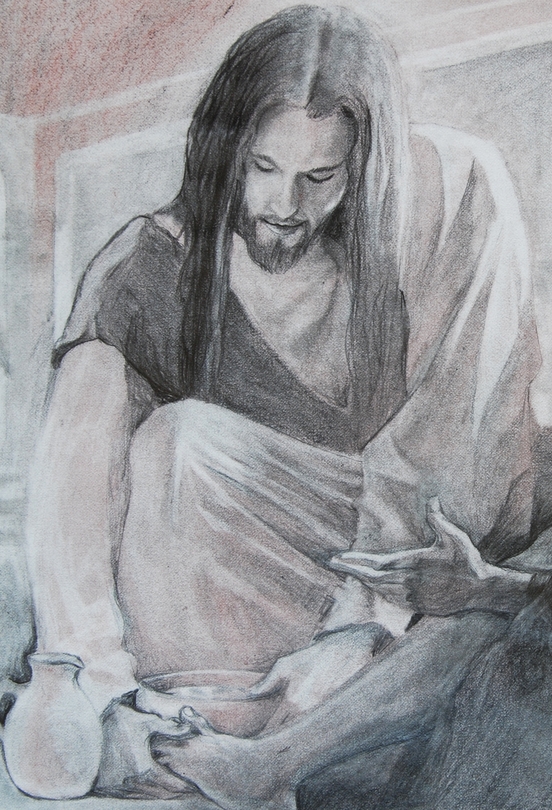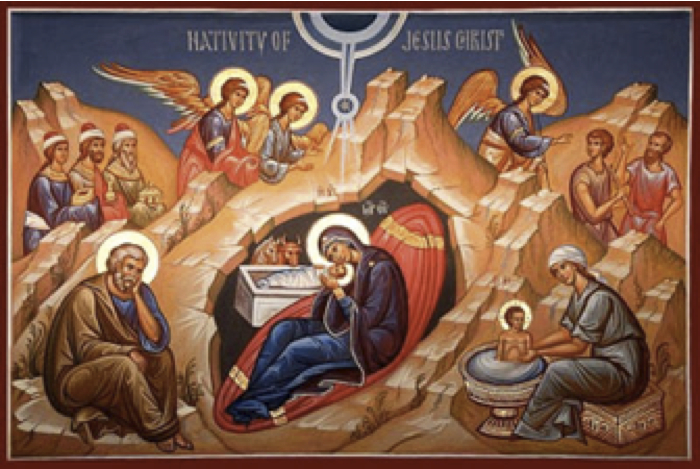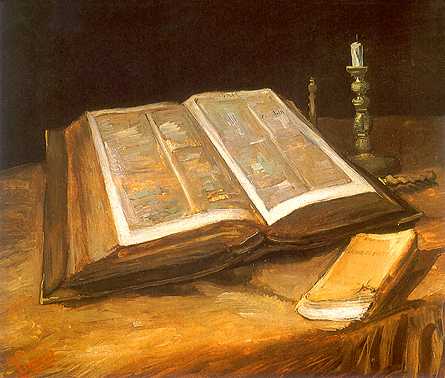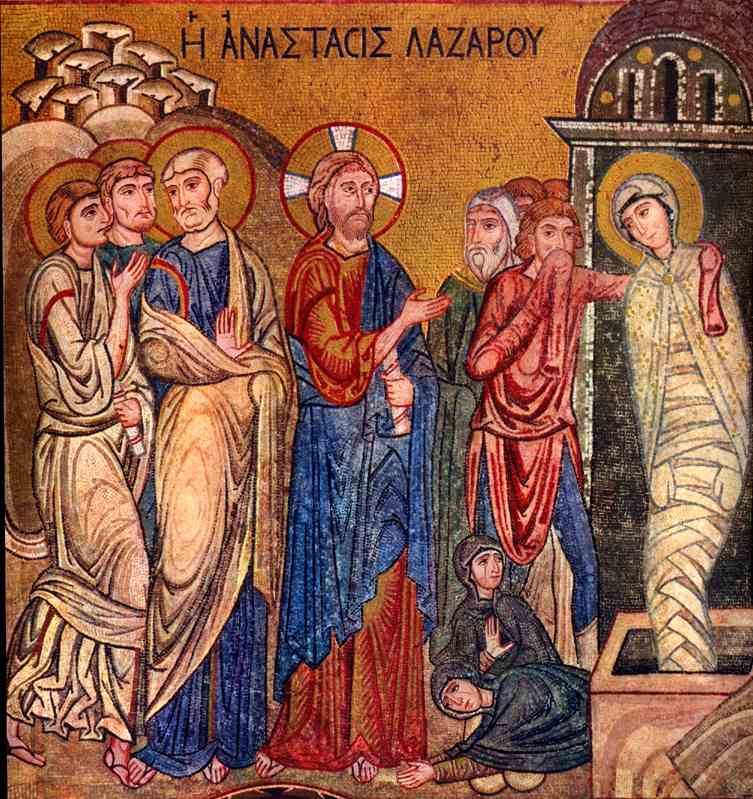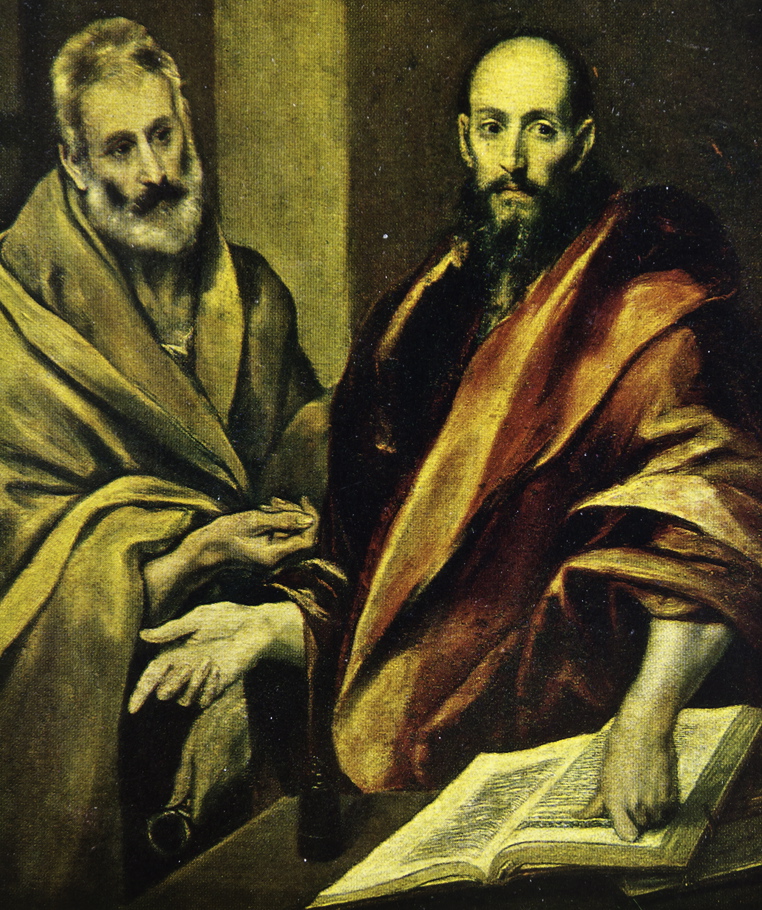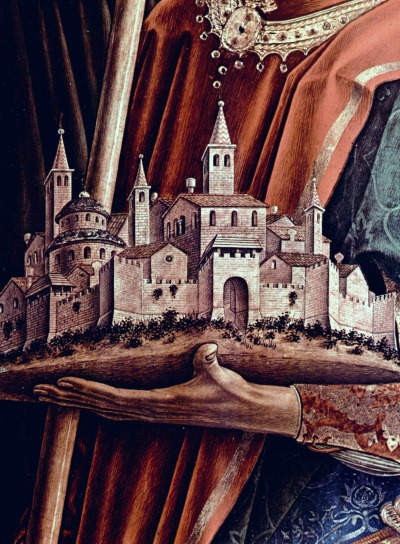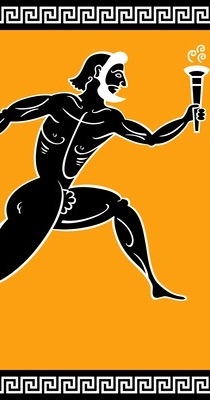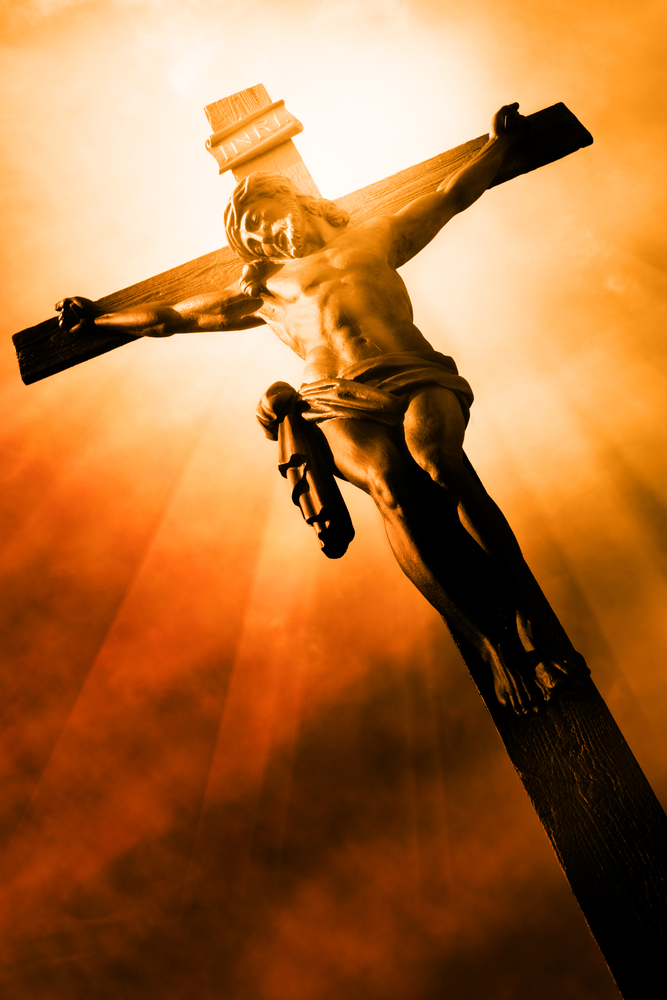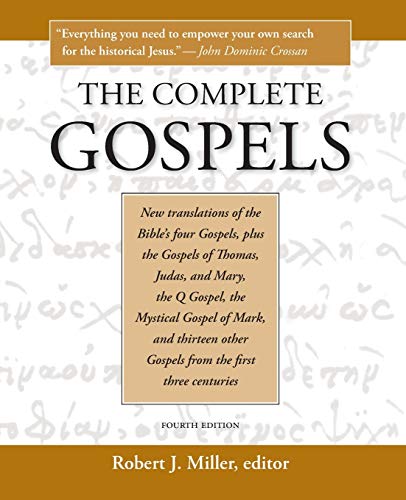A sermon preached on the Second Sunday after Christmas – the readings for this sermon include: John 1:1-9, The Gospel of Thomas 70; Matthew 2:1-12.
When John accuses "evildoers" of leading gullible people into sin, what troubles him is what troubled the Essenes: whether—or how much—to accommodate pagan culture.
For years, I refused to read any of John’s writings. I thought the Gospel of John was a bunch of mumbo jumbo and the Book of Revelation was full of craziness. Thanks to the Reverend Ken Wyant’s Bible study at Irvine United Congregational Church, I changed my opinion about the Gospel of John—but I still want to ban Revelation.
Mary Magdalene was the first person, male or female, to witness the empty tomb…the first to see angels who reported the resurrection…the
NEW TITLE RELEASE 21st January 2016
In this book Lorraine Parkinson sets out compelling reasons why the gospels may be found to have been ‘made on earth’. She builds a strong argument that each gospel was written to make a distinct case for Jesus as the Christ. She presents detailed evidence that the Christ of the gospels is the creation of Mark, Matthew, Luke and John, plus later editors. The sub-text of this book contends that by including teachings of Jesus alongside claims for him as Christ, gospel writers bequeathed to Christianity two contradictory gospels – the gospel of Jesus and the gospel about Jesus.
Download the PDF of A Joyful Path, Year One, Lesson #34 - "Experiencing God as Light" right into your digital device. God can be experienced as light, visible to the physical eyes and as a universal inner reality.
A Commentary for the Observance of Independence Day, 2015
Liberty and Freedom: People – especially politicians, it seems – frequently use the two terms interchangeably, as if they were the same thing. But while civil liberties can be legislated and personal freedoms can be infringed upon, there is something autonomous about personal choices and actions that can never ultimately be denied or encumbered. “Freedom is not something that anybody can be given,” the late author and civil rights activist, James Baldwin, once said. “Freedom is something people take, and people are as free as they want to be.” An earlier commentary considered the two ideas of conscience and consciousness as a spiritual component and practice of human experience. These comments are written as we approach our nation’s annual observance of the Independence Day holiday; exploring what might constitute a progressive Christian perspective of a kind of liberating “freedom” that is comprised of loosing the bonds of all the little deaths we die, and binding oneself to that which can irrepressibly spring once more to life.
The challenge for a progressive Christian who has moved beyond such notions as virgin births and gods disguised in human form come to save us from ourselves is to remember that it is as much a historical development, as it is a theological one. That is, the attribution of a “Christ” title accorded a very human Jesus constitutes the imaginations -- if not machinations -- of an early Church; consisting of very human, second-generation followers of a 1st century Galilean peasant sage and itinerant preacher. And who all but drowned out the authentic voice of the one who was once born and dwelt among humankind. Such an assertion is simply based on the fact the historical Jesus never self-identified as the “anointed one,” the Christ. As such, if one were to remove the Christ-title from the various birth narratives of those secondary traditions of this religious movement, what would remain of the “Christmas story” that has become as prevalently assumed, as it has been unexamined? If we took the Christ out of Christmas, what might remain of the voice of one who was born and dwelt among us? You can read more here.
An Open-Ended “Creed” for a Progressive Christian
I have often said so-called “progressive Christianity” is a notion forever in search of its own elusive definition; and that’s as good a way of explaining it as we may be able to find. We live in a post-modern world that considers the age of Enlightenment to be a post-facto reality. As such, “progressive” thinking in an age of Reason has pushed the boundaries of nearly every facet of life, except one: those ‘traditional’ or ‘orthodox’ beliefs, based on certain creeds, doctrines and dogma that still dominate what it presumably means to be “Christian.” It hardly needs to be said that it is also why so many one-time believers have outgrown their one-time faith. Calling them merely “lapsed” is misleading. So much has elapsed in the world we have all come to know and take for granted, that the once-dominant Church -- -- despite all its denominational varieties -- has fast become a post-modern relic. Yet any critical examination of how Christian scriptures developed and how the history of the tradition evolved will quickly demonstrate how it has always been in a constant state of flux. Or, if you like, “progression.” It was only when it stopped and got stuck that we traded in the tent for a temple, and snuffed the life out of a movement that is progressive by its very nature. What then would constitute an honest statement of belief for at least this "progressive Christian?"
One of the most serious theological conflicts in the history of Christianity occurred more than one thousand six hundred years ago. Known as
John Shelby Spong gives an introduction and brief explication of his 5 day lecture series hosted by the Department of Religion, in the Hall of Philosophy.
John Shelby Spong explains how the 4th Gospel creates a symbol from the presence of Christ's mother. This is the fourth lecture of a five lecture series.
John Shelby Spong continues his 5 day lecture series. He explains the colorful characters who hold dual purpose in the fourth Gospel.
John Shelby Spong concludes his five day lecture series by explaining the Crucifixion in the fourth Gospel. This event was hosted by the department of religion and took place on June 27, 2014.
Mary, we did not know you. Kept hidden for centuries you were despised, A Queen not seen, under harlot’s disguise. Mary, we did not know you.
The idea of a second coming of Christ is a mystery, if not explicitly controversial. Jesus’ followers apparently believed he would return during their lifetime after he was crucified. When that didn’t happen, later followers gradually changed the belief into an indefinite “someday.” After two thousand years of waiting, most Christians no longer look for it to happen in their lifetimes and acknowledge that Jesus may have been speaking metaphorically about his return. It is just as likely that those words were put into Jesus’ mouth by the gospel writers themselves. Wishful thinking?
On the First Sunday of the Advent season this year – for those Christian faith communities that observe a liturgical calendar -- the traditional four weeks of waiting on the tiptoe of expectation only lasted until 1:37 PM that afternoon for our family; when my own daughter gave birth to her first-born child.
The four gospels divide Jesus’ followers into three groups. The Greek word “ochloi” refers to the crowds who gathered when Jesus preached; “Mathetes” refers to the followers who stuck around for more teaching; and “Apostolos” refers to the disciples, those chosen by Jesus as his inner circle.
A Commentary for the Annual Observance of Independence Day, 2013
“We hold these truths to be self-evident, that all men are created equal, that they are endowed by their Creator with certain unalienable Rights, that among these are Life, Liberty, and the pursuit of Happiness." These grand words are etched in the American consciousness, and serve as a preamble of sorts to the Constitution’s subsequent ideal goal of “a more perfect union.” With the recent split Supreme Court decisions over voting rights and marriage equality, along with and passage of an immigration reform bill in the Senate that naysayers declare is DOA in the House of Representatives, it would appear that while progress has been made, we clearly remain a work in progress, as well. As we prepare to celebrate our Independence Day holiday this year the fireworks have been set off a little early with the debate over the intelligence surveillance practices of the so-called Patriot Act by a government that was established of, by and for the people. Call them heroes or traitors, whistleblowers or hack-tivists, there are also a growing number of anti-authoritarian tech geeks who claim to be motivated less by notoriety than a certain principled conscience to which they claim to have pledged a higher allegiance. So, what is the nature of “natural” or “divinely-bestowed” rights? What of human conscience, earthly authority, and more? And – for those of us who might consider ourselves both a red-blooded American and Christian of one sort or other -- what might constitute a “Christian” conscience, based on a Jesus life-ethic? You can find the latest commentary Here.
The Gift of Mortality
Avowed atheist Susan Jacoby recently created a dust up with a recent article in the New York Times Sunday Review entitled, “The Blessings of Atheism.” She wrote in response to all the god-talk that appeared in the immediate aftermath of the Newtown massacre; with all those unanswerable questions or inadequate answers to human suffering and death so often peddled in popular religious belief. So too, not long ago author and “non-believer,” Christopher Hitchen’s posthumously published his little book Mortality; recounting his rambling thoughts on his own imminent demise; after a terminal diagnosis left him a sufficient number of days to find himself “deported from the country of the well across the stark frontier that marks off the land of malady.” But what, or where to, after that? What if this really is all there is? It seems there has always been the human hankering to imagine all kinds of fanciful notions, in our attempts to recapitulate our mortal existence into something more than it is. Many religious traditions, including centuries of “mainline” orthodox Christianity, employ great mythic stories to describe a life subsumed into something greater than we can either know, or grasp, except by “faith.” Heaven knows, some folks try to better themselves, merely in the hope of a remote possibility there something more, after our death, which is a certainty. But in the end, is it all dust and ashes? And is that OK? This is the liturgical time of year when many in the Christian tradition undergo a seasonal pilgrimage in which the faithful are reminded at the onset we mortals are nothing more than dust. And so we will one day return to that from whence we came. Then the traditional forty days end with the perennial re-enactment of a passion play commemorating the mortal demise of the one whom Christians even these many centuries later would profess to follow. Many do so in the hope of some kind of immortality for themselves in some indecipherable form or other; attributing to Jesus a “resurrection” that means the same thing to them as god-like immortality; while others of us may find such imaginings to be not only reasonably implausible, but of less importance than what we take to be of greater significance and meaning in this faith tradition. Otherwise, the vainglorious hope of immortality can become so enshrouded in our mortal fears that we become – like Lazarus in his early grave – so wrapped up in death that we fail to truly acknowledge and appreciate the gift of our mortality for what it is; nothing more, nor less. With the certain assurance then that we are but dust and ash, we can ask ourselves if the gift of our mortality is not only enough, but more than enough? And if so, as the psalmist says, how then shall we “number our days, that we may apply our hearts to wisdom?” (Psalm 90:12)
But the loss of their key center and probably the main leadership and overall strength of the movement opened the way for Pauline Christian influence which is clear particularly in Luke (both his Gospel and Acts).
The great dividing line for two religions and the relationship between them is the period of 66-70 CE, which ended in the destruction of both Jerusalem and the great "Second Temple". For Jews of the time this destroyed the political, economic and religious organization of Israel....
Now there are at least two major types of people who do take seriously what is said in the New Testament (NT), which I'm summarizing here as "the Gospel." Here are the two types, for our purposes in this very brief summary of NT understanding as it relates to who wrote the books...
Jerusalem, Now and When?
Why would a Jewish American doctor risk serving the medical needs of Palestinian children in the occupied territories of the West Bank?
Jesus' Way of Confounding the Trophy-centric Ways of this World
The ancient Olympic games were a series of athletic competitions between city-states. The results determined who were the winners, and who were the losers. But during the games, any conflict between the warring states was forbidden. If ever there was a time when that Olympic torch should be lit and never be extinguished, perhaps this is it. But how? It seems international good sportsmanship inside the stadium can only be assured by heavy security on the outside; where unruly competing self-interests would seek to turn winning at all cost into a blood sport. The previous Words & Ways commentary explored a foolish kind of wisdom once espoused by a Galilean sage through his teaching, the parables he told, and even the seeming absurdity found in his miracles (see "The Foolishness of Jesus"). It is this same Jesus tradition that also proposes such counter-cultural notions that one can “win by losing," and “the last shall be first." Here's John Bennison's latest commentary from Words & Ways.
I've titled this as about the Resurrection, which is just one part of a complex of beliefs... but let's return and end there... What similarities or differences do you see in Paul's Resurrection statements and beliefs and those of the early Jerusalem Jesus-followers?
2) The Hebrew scriptures, or the Old Testament, represent a religious tradition that is independent of the later Christian faith. The Hebrew scriptures aren't about Jesus, although the Christian scriptures include many references to the Hebrew scriptures. To honor the fundamental differences between the two sets of scriptures doubles the spiritual significance of the entire Bible.
The Complete Gospels is the first publication ever to collect the canonical gospels and their extracanonical counterpoints under one cover. The selected extracanonical gospels date from the first and second centuries, are independent of the canonical gospels, and significantly contribute to our understanding of the developments in the Jesus tradition leading up to and surrounding the New Testament gospels.
Rev. Dr. Matthew Fox worked out a theology that makes sense for post-modern, 21st century mystics who want to honor the Christ of John’s Gospel without forcing the text into impossible literalism. Fox’s “Cosmic Christ” evokes responsibility for the condition of all forms of life on Planet Earth, and confers the power to carry out the work that arises from that responsibility.

